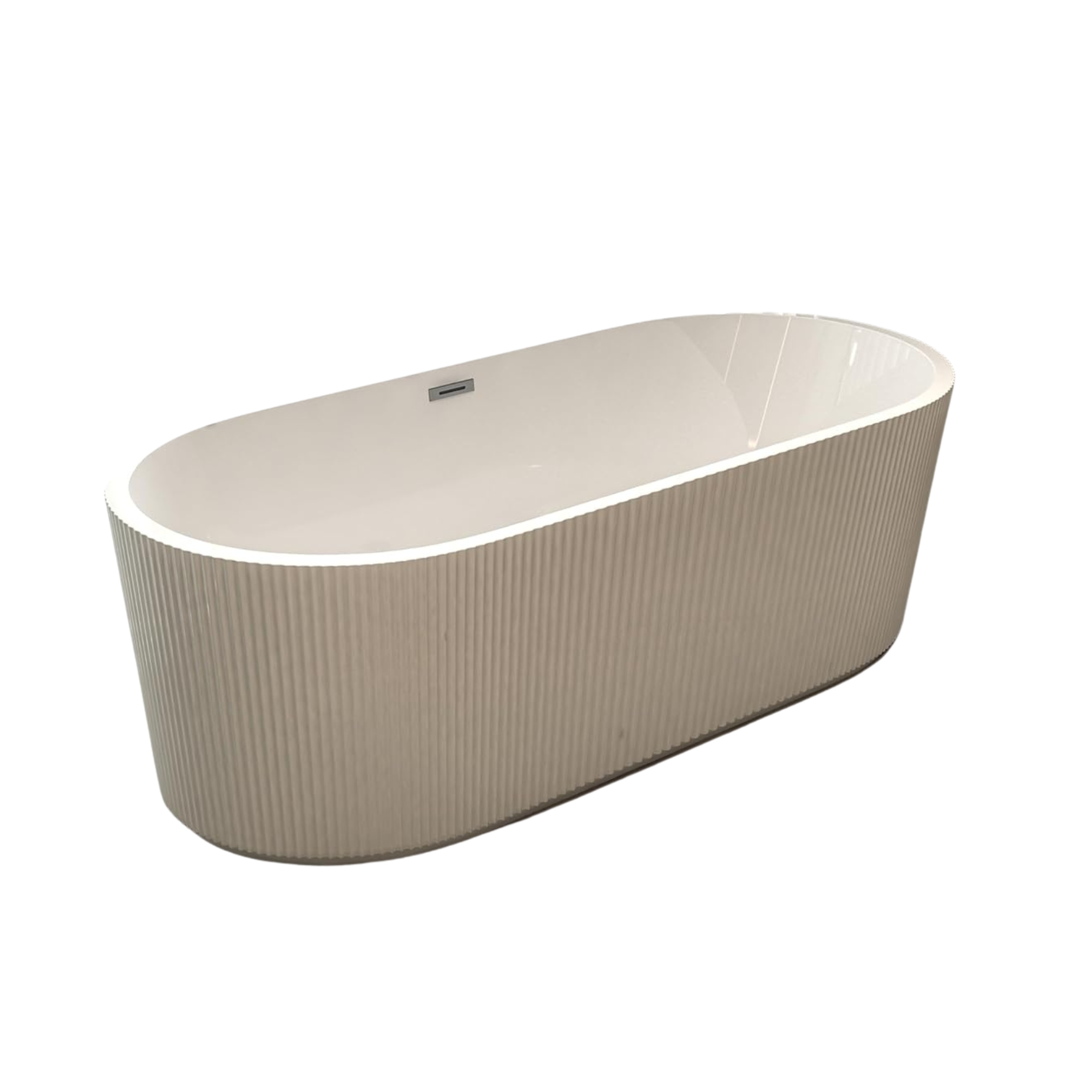7 things construction pros always notice in terrible bathroom remodels – and how you can avoid these costly errors in yours
Don't get caught out during your bathroom remodel

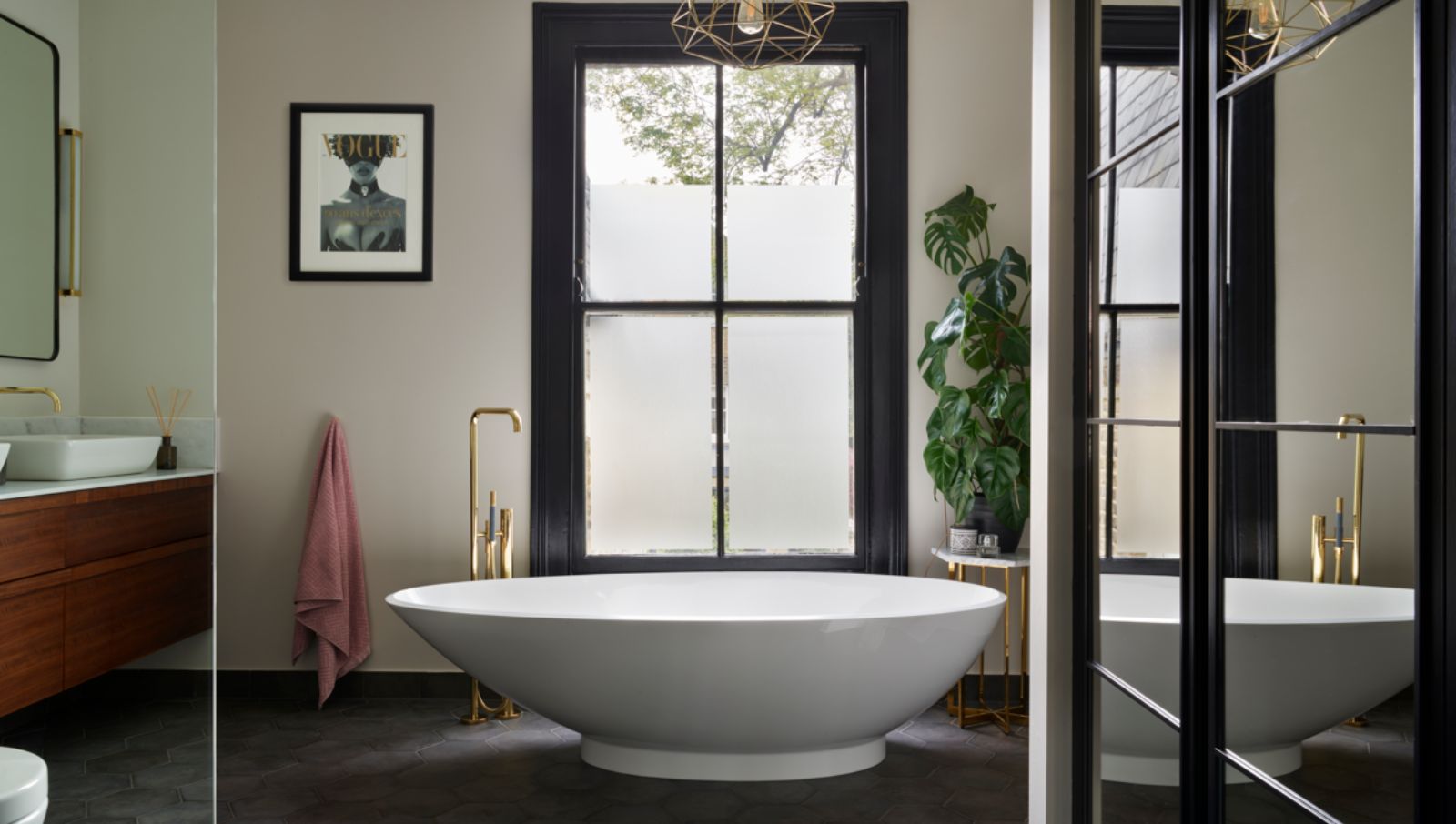
Tackling a bathroom remodel is an exciting time, which will finally bring new longed-for features and function to this vital space in your home.
But in your excitement to get it done, there is a danger of jumping ahead before you have enough budget in place, hiring the wrong contractors or skipping some altogether, which can lead to awful outcomes in the longer term.
Here, our construction experts reveal the top seven things they always spot in terrible bathroom remodels, why they can end up being such a problem down the line, and how you can swerve them when bringing your new beautiful bathroom ideas to life.
7 terrible things construction pros always spot in bad bathroom remodels
1. No damp-proofing
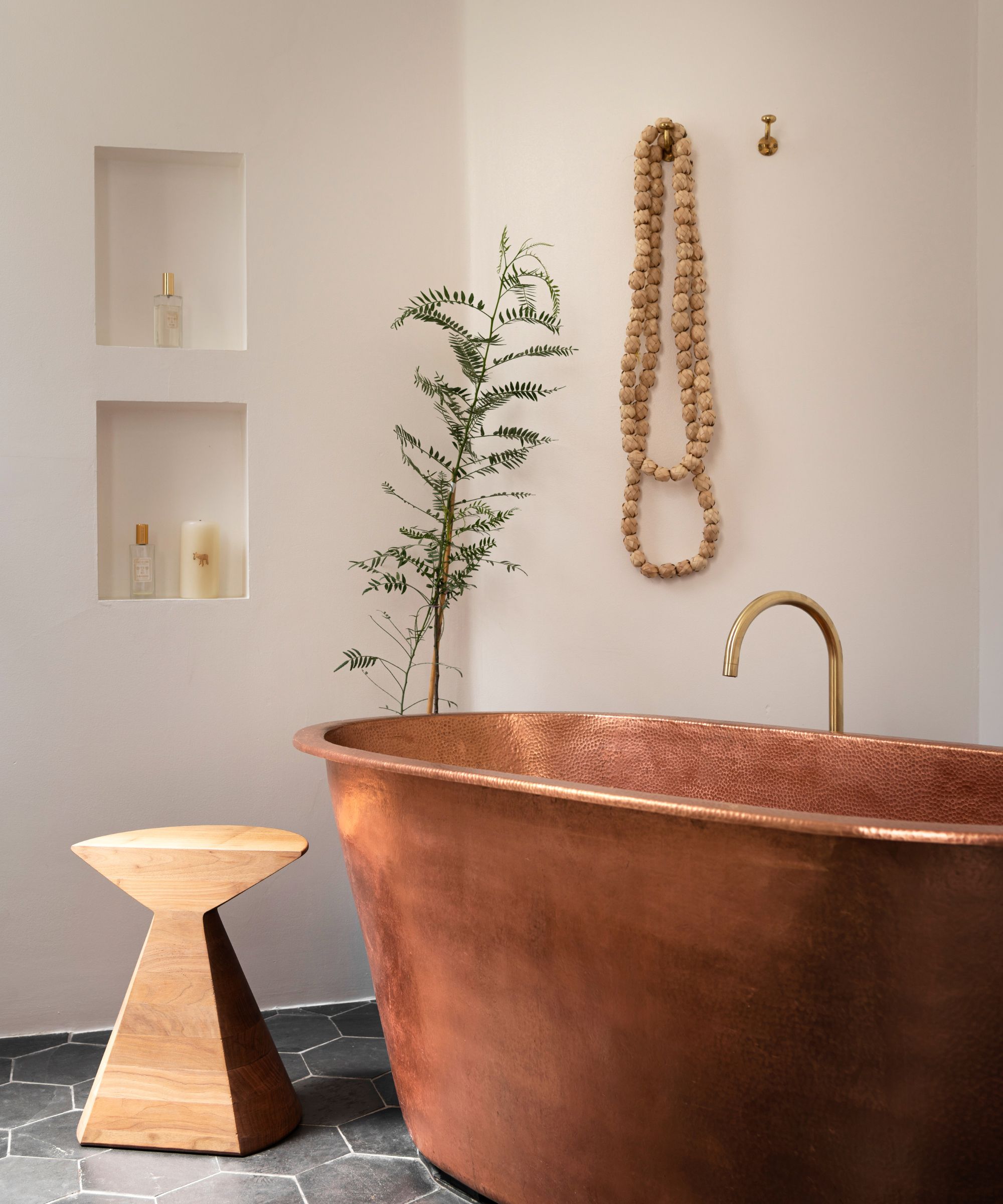
A failure to damp-proof one of the wettest and most humid rooms in your home is a recipe for disaster, leading to mold, damp, and mildew in your new bathroom and beyond.
Joe Gerrior, owner of Gerrior Masonry & Landscape Construction, serving residential and commercial clients for over 34 years says, 'As a masonry and landscape contractor for over 30 years, I've repaired many issues from poorly planned bathroom remodels with improper waterproofing.'
Joe explains if regular drywall and flooring is used, it inevitably leads to rot and water damage in the humid climate of bathrooms, and recommends cement board (such as Durock Cement Backer board available at Lowe's), tile, and waterproof flooring. He adds, 'Poor ventilation also causes problems. Steam from showers requires exhaust fans vented outside. I've had to replace joists and subfloors ruined by excess moisture and lack of ventilation.'
Dan Staupe, co-owner of Compass Exteriors has seen this in action countless times. He says, 'It's a problem that’s hard to take for homeowners, but I’ve seen countless bathrooms with mold and moisture problems that were just renovated.'
Design expertise in your inbox – from inspiring decorating ideas and beautiful celebrity homes to practical gardening advice and shopping round-ups.
He says the problem comes from bathrooms that were never waterproofed properly, with seals that age and break, and exhaust fans that do not remove moisture as well as they should. 'You end up with mold problems beneath the sink and vanity, behind as well as under the tub.'
Worst still, Dan has seen this failure to waterproof a bathroom remodel seep out to exterior walls. He adds, 'We have even repaired exterior walls outside bathrooms that leaked rainwater in, and caused mold.'
To avoid this, Dan warns to be very careful about who you choose to remodel your bathroom. 'Ask them about waterproofing,' Dan advises. 'Ask them about replacing the exhaust fan too. If you use a discounted contractor, including the big box installers, you’ll pay a much bigger price for your mold remediation, and a second remodel in a few months.'
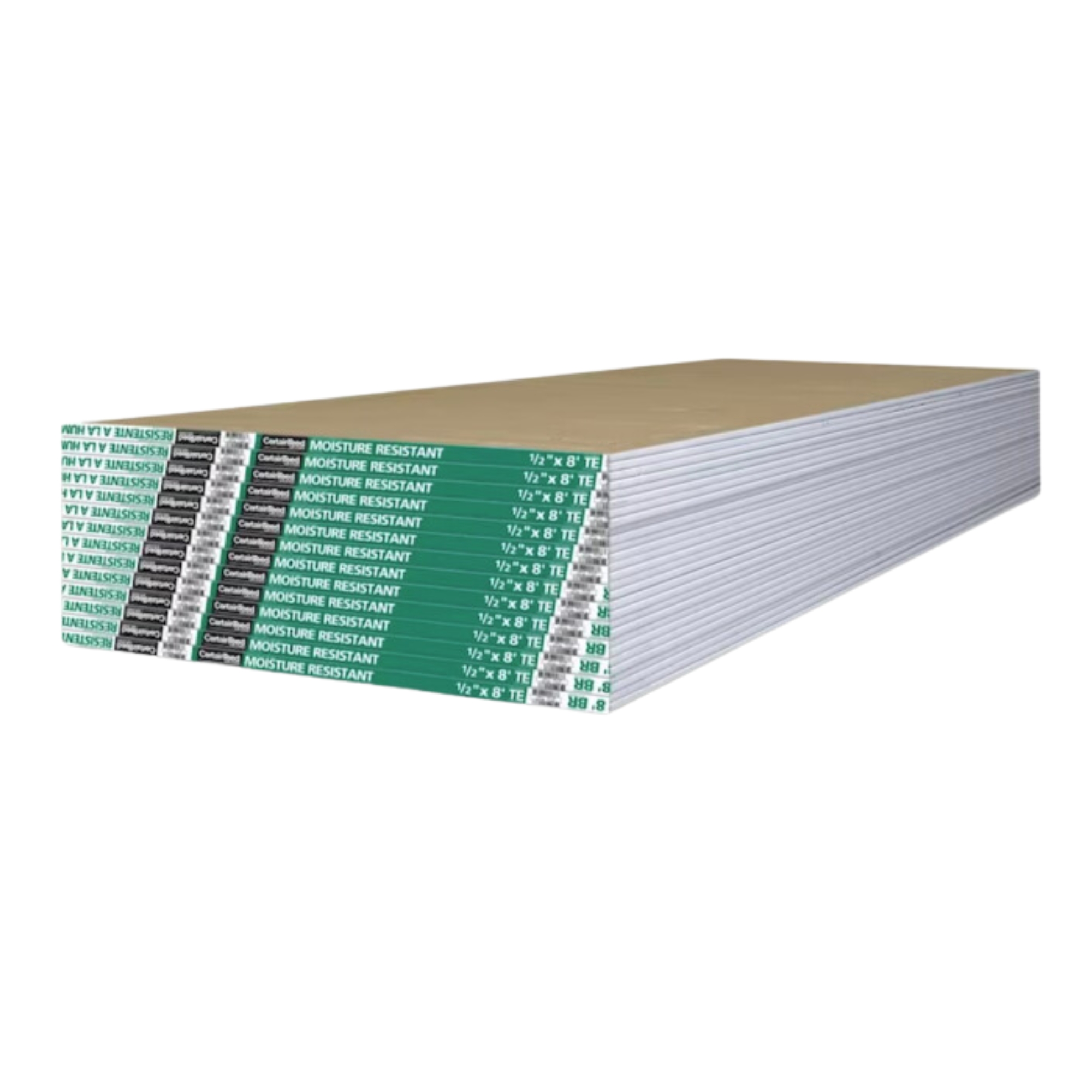
Ask your contractors what type of drywall they are using and where in the bathroom. This mold and moisture resistant drywall can perform well for bathrooms and high moisture areas such as garages. But don't use it in the shower or around your tub as it won't hold up for that level of direct moisture - use cement drywall instead. This item gets discounted down with bulk purchases of 34+ pieces.
2. Skimping on materials
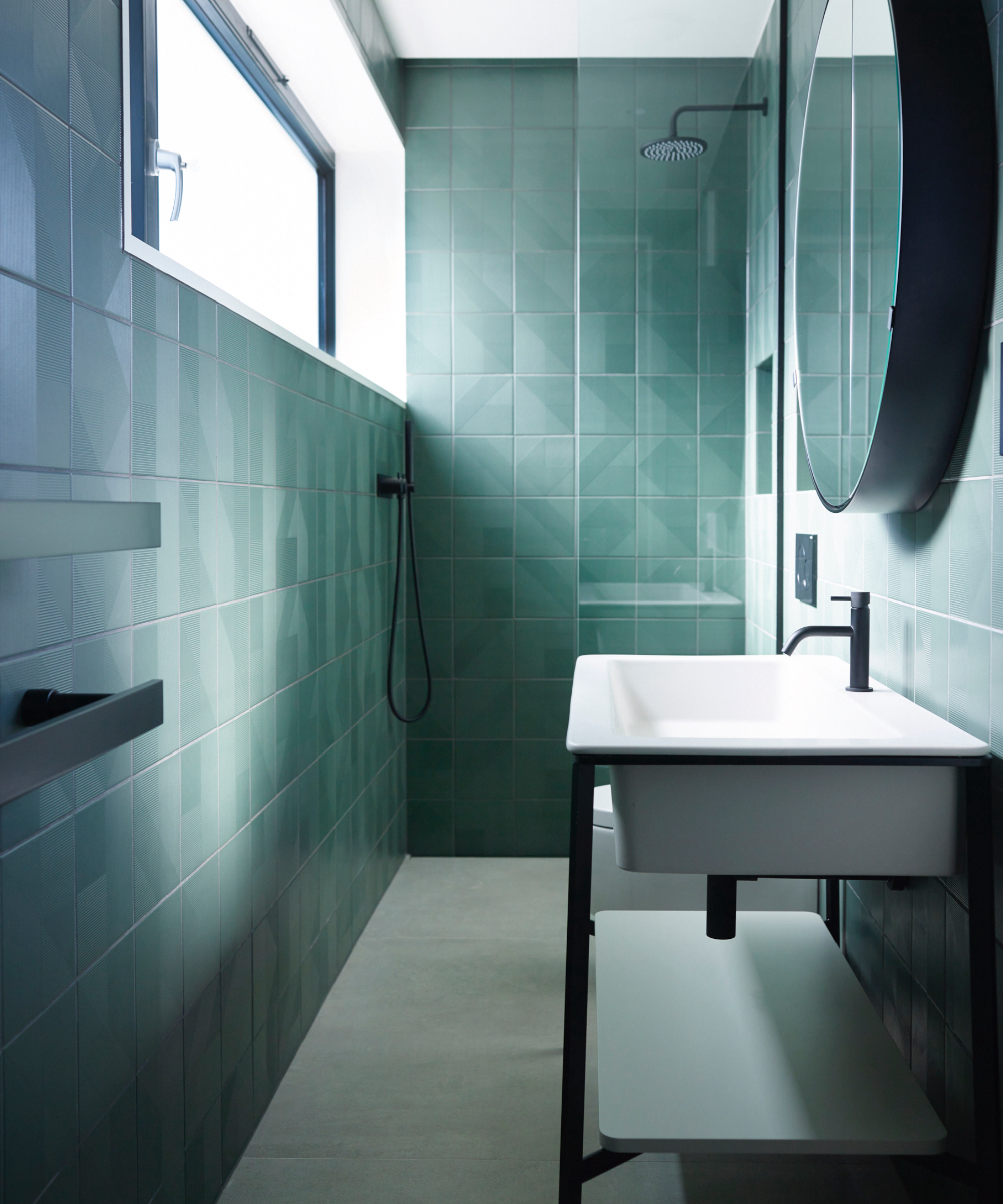
Jerome Bertuglia, owner or Prime Homes, and expert in building custom luxury homes says, 'I frequently see people skimp on materials to save money, only to spend more on repairs and replacements in a few years. Invest in water-resistant wood, stone, tile, and fixtures built to last.
'Cheaper options won’t withstand the humidity and use in a typical bathroom. Quality materials used properly the first time save thousands of dollars and a lot of headaches in the long run.'
Joe Gerrior adds that doing it right the first time leads to stylish, functional bathrooms that last and will help you avoid bathroom remodeling mistakes.
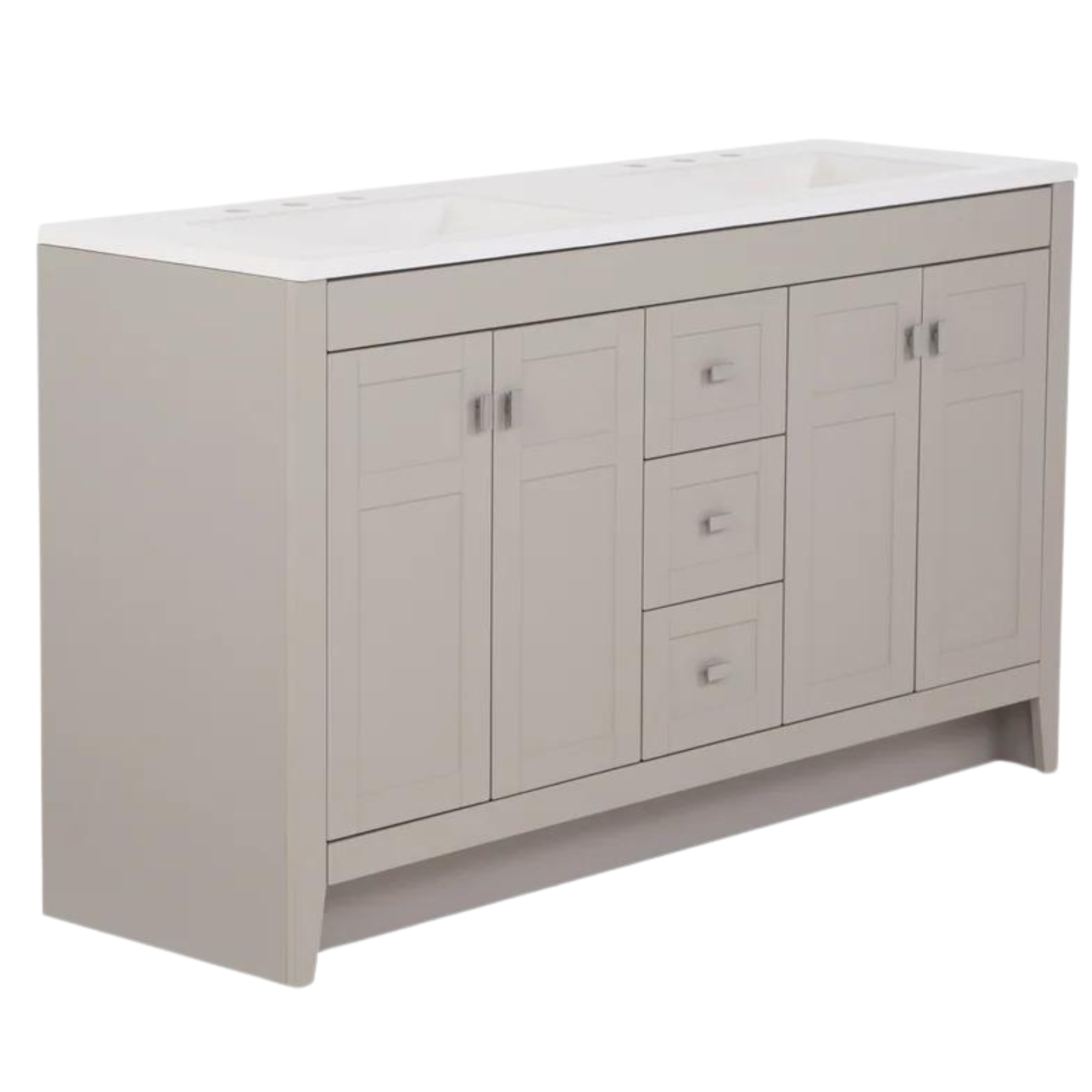
This beautiful bathroom vanity has ample space with four cabinets and four drawers but it's the materials that make it worth the spend. It's made from engineered wood designed to be bacteria-, mold, and mildew-resistant, with a marble vanity that features a nonporous overflow hole-free sink. The soft-close hinges add luxurious function to form.
3. Incorrect plumbing and venting
Jerome Bertuglia adds another common issue to the list of terrible things he has spotted in many bad bathroom remodels. 'Incorrect installation of plumbing, valves, drains, and fixtures from DIY or unlicensed contractors often make mistakes that lead to leaks, water damage, and other issues down the road.'
He says key bathroom remodeling tip is always hiring licensed plumbers and paying for professional installation, and says it will absolutely be worth the investment.
Joe Gerrior adds, 'DIY plumbing and electrical work often causes leaks, fires or electrocution hazards. Always hire licensed pros for the complicated, dangerous work. Their expertise protects your investment in the long run.
Richard Garrett, of RG Pro Builders has spent more than 20 years in the trades as well as construction management and says, 'As a construction professional who deals with bathrooms daily, the most common issues I see are water damage and rot from improper ventilation and plumbing. Always install exhaust fans that vent outside, never recirculate bathroom air, and hire licensed plumbers to avoid leaks into walls or under floors.'
When home venting isn't done properly in bathrooms, it can lead to slow drains, gurgling sounds in the pipes and even sewer gas odors entering the home.
These issues don't just impact the bathroom's functionality; they can also present serious health risks.
Patrick Sullivan, operations manager at John The Plumber says, 'I frequently encounter incorrect plumbing venting in bathroom remodels, especially in DIY or budget-focused projects. When venting isn't done correctly, it can lead to slow drains, gurgling sounds in the pipes, and even sewer gas odors entering the home.
'These issues don't just impact the bathroom's functionality; they can also present serious health risks. The fix often involves adding or adjusting vent pipes to meet local plumbing codes. To avoid this issue, homeowners should always consult a licensed plumber during the planning stages of a remodel, even if they're attempting some of the work themselves. Adequate venting is essential and should never be ignored or compromised.'
I unknowingly bought a newly-built home from a developer that skimped on plumbing experts and three years down the line, have discovered the sewer gas odors we occasionally experience are likely down to the poor quality workmanship that went into properly venting the bathroom in our property.
Take it from me, it's a pain like no other having to battle smells in your bathrooms and not worth the dollars you save no to live with this in the longer term. To combat other bathroom smells, learn what people with nice-smelling bathrooms never do.
4. Baths on raised platforms
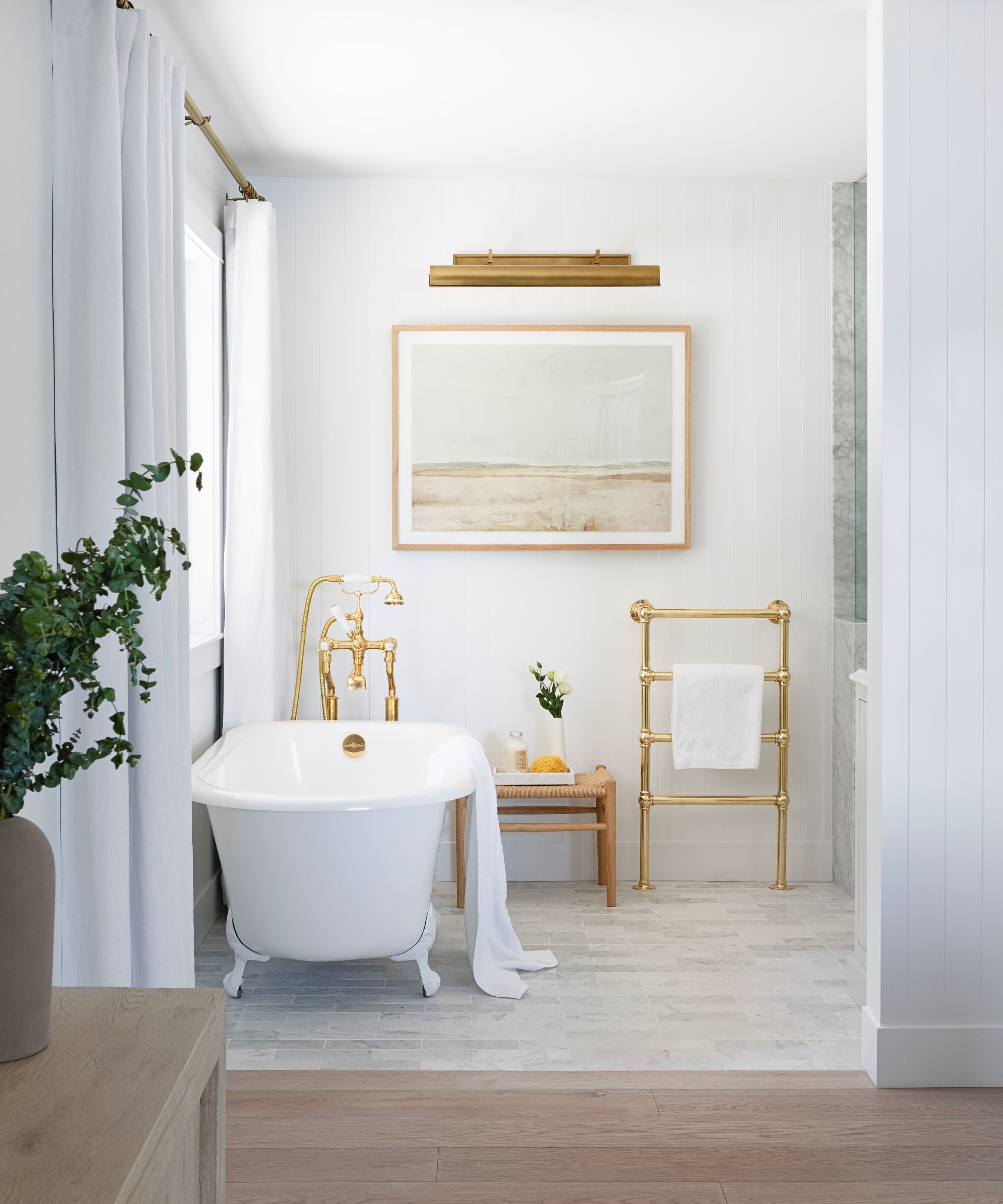
If like me you adore and cherish the hours you spend soaking in the tub, by all means go ahead and make a freestanding tub idea the central focal point of your new bathroom layout. But do be mindful that beautiful but improperly fitted bath platforms could spell disaster.
Scot Rounds has more than 20 years experience in the construction industry, and is CEO on Sunray Roofing and Solar, says, 'Poor bathroom remodels always catch my eye. Shoddy tiling and plumbing work are common issues I notice, as water damage often requires roof repairs or replacement.
'One terrible trend is installing baths on raised platforms without proper waterproofing or tile work. I've seen many cases where water seeps beneath the platform, damaging lower levels and requiring full replacement of the platform and tub. Proper waterproofing, tile installation, and sealing are musts for any raised platform.
5. Inadequate ventilation
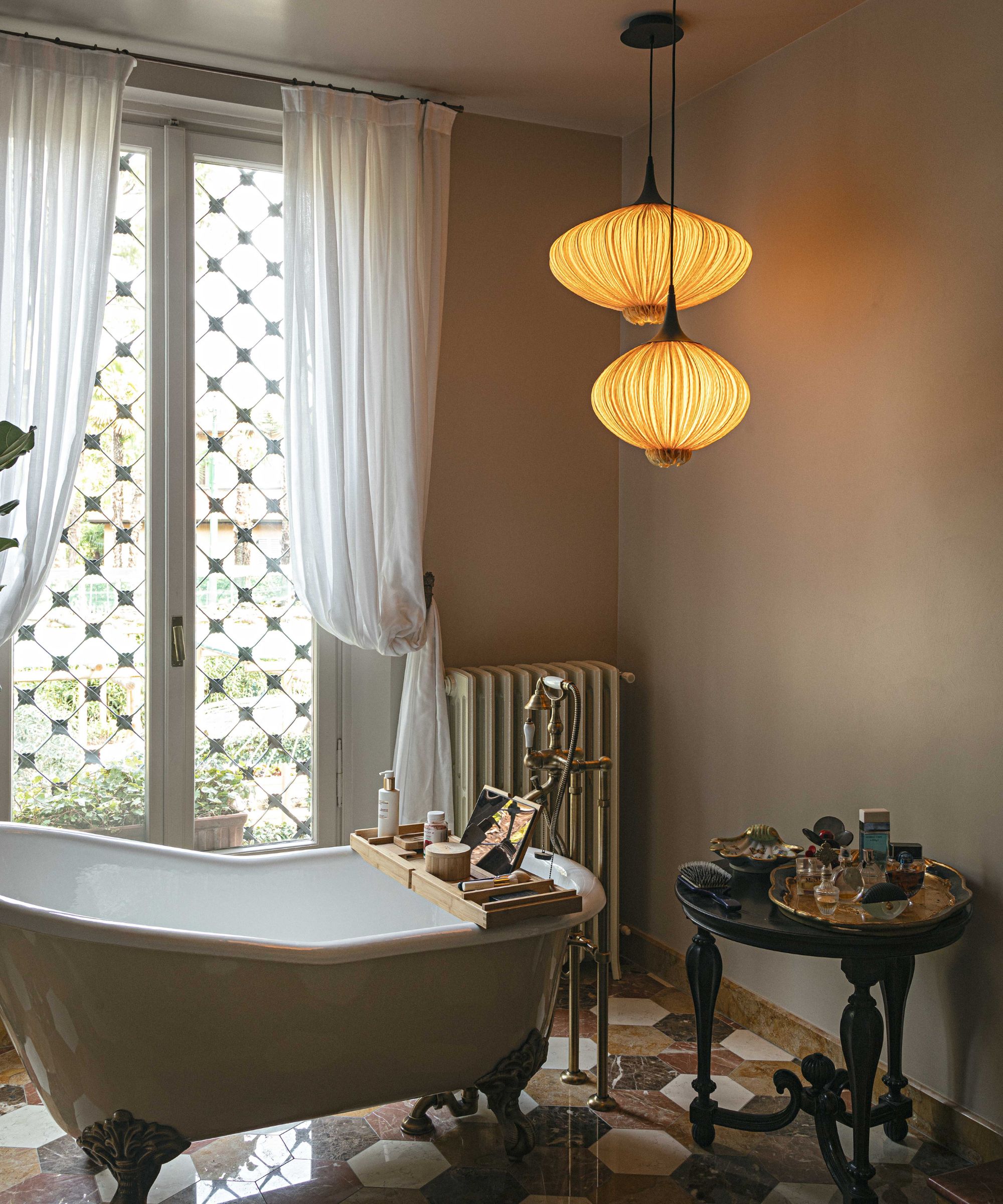
Scot Rounds adds improper overall venting for showers and tubs can lead to excess moisture build up. 'This causes water damage, mold growth, and structural issues.'
He recommends making sure your construction team install powerful exhaust fans and exterior vents and make sure attic and crawl spaces are fixed. He adds, 'My advice is to hire licensed professionals, not cut corners, and consider how all elements of a remodel including plumbing, tiling, and ventilation work together.'
6. Poor planning
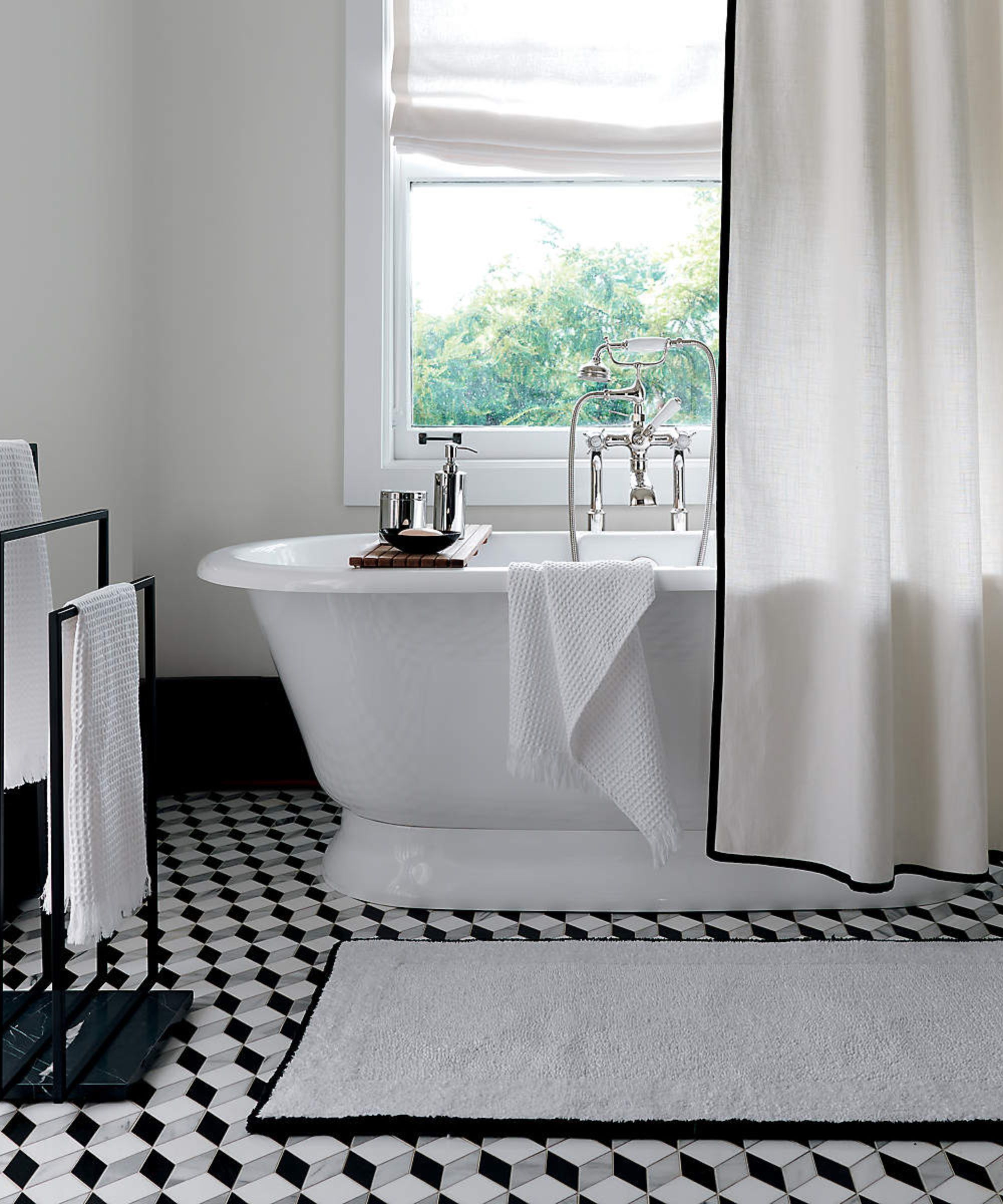
Amanda New, the Founder and CEO of Cash For Houses Girl has over a decade in real estate and successfully bought and sold hundreds of properties. She says, 'Unfortunately, terrible bathroom remodels are not uncommon with 20% of homeowners reporting being unhappy with their bathroom remodel, and 40% having regrets about at least one aspect of the project. This shows that even though bathroom remodels can greatly improve the functionality and aesthetics of a space, there is still room for things to go wrong.'
This is often a results of inadequate planning and design. Amanda adds, 'If the layout and functionality of the bathroom are not carefully considered, it can result in a space that is awkward to use or lacks necessary storage. This can greatly impact the function and efficiency of the bathroom.'
A significant factor that leads to a terrible bathroom remodel is the use of poor materials and bad craftsmanship. Amanda adds, 'Cutting corners on materials or hiring inexperienced contractors can lead to subpar results that not only look bad but also compromise the safety and durability of the space. To avoid a terrible bathroom remodel, it's essential to do thorough research and planning before starting the project.'
Amanda ring fences the following to consider in detail:
- Set a realistic budget: Before starting any remodeling project, set a budget that you can stick to. This will help prevent overspending and ensure that you get the best quality materials and workmanship you can afford.
- Hire reputable professionals: Don't just hire the first contractor you find or go for the cheapest option. Take the time to research and ask for recommendations from friends or family. Hiring experienced and reputable professionals will ensure that your bathroom remodel is done correctly and meets your expectations.
- Consider functionality and layout: When designing your new bathroom, consider the functionality and flow of the space. Make sure there is enough storage, and the layout makes sense for your needs.
7. DIY electical work
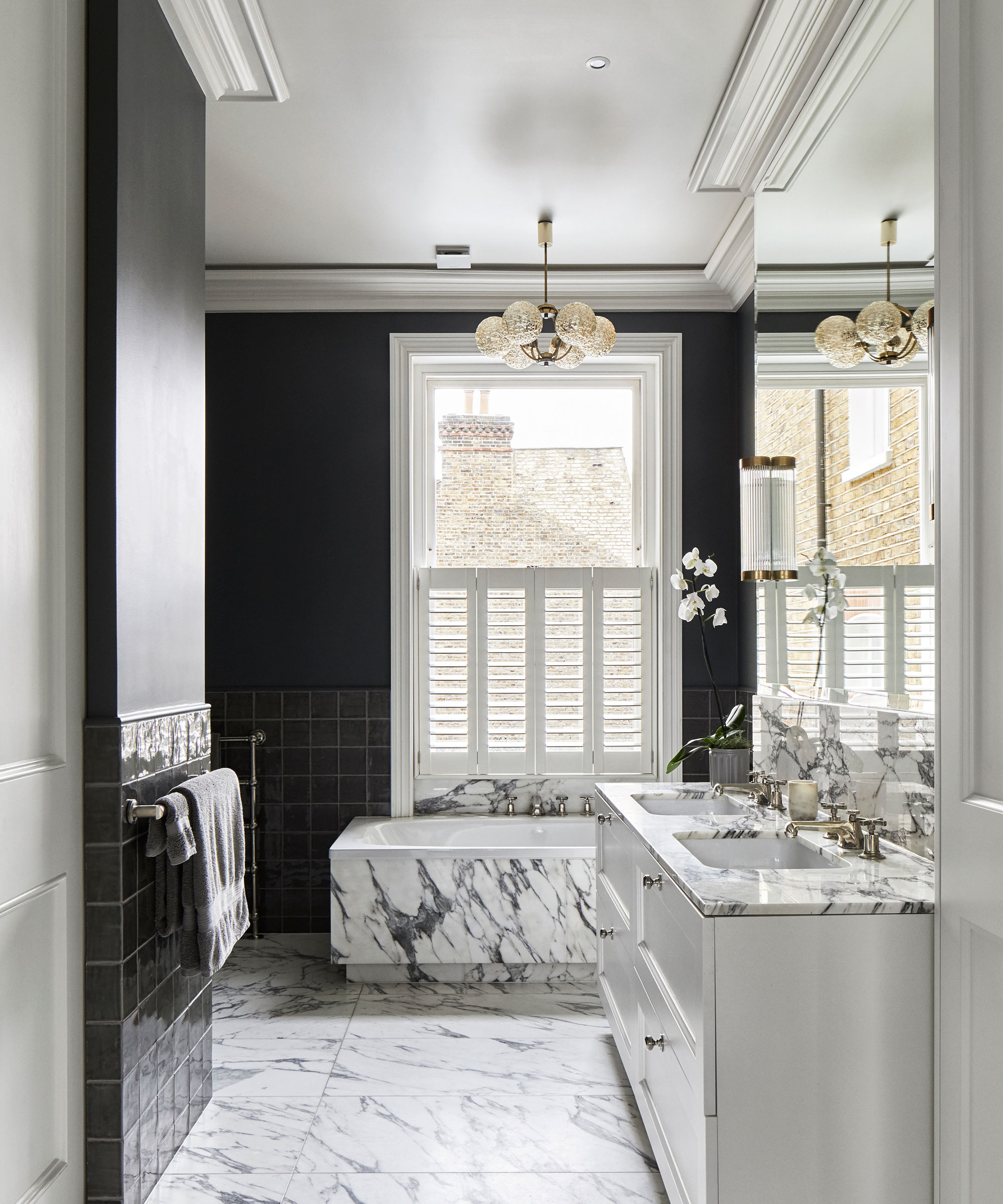
Great lighting can make or break a space, but skimping on costs and trying to install these yourself, or using an inexperienced pro to do it can lead to dangerous consequences.
Kevin McLaughlin, home improvement specialist and Owner at Heritage Exteriors says, 'DIY electrical work risks electrocution or fire. Always hire pros for the complicated, dangerous work. Their expertise protects your investment.'
When planning the remodel around your dream bathroom idea, don't skimp on materials, damp-proof and ventilate properly, and do not be tempted to give the electricals a go yourself unless you are an industry pro yourself who knows how to do it safely.
Next, delve into bathroom design mistakes to make sure the aesthetic of your now structurally sound remodel doesn't let down the project and result in a lack of function.

Punteha was editor of Real Homes before joining Homes and Gardens. She has written and edited wellbeing, lifestyle, and consumer pieces for the national press for 17 years, working across print and digital newspapers and magazines. She’s a Sunday Times bestselling ghostwriter, former BBC Good Food columnist and founding editor of independent magazine, lacunavoices.com. Punteha loves keeping her home clean, has tested and reviewed the latest robot vacuums and video doorbells, enjoys cooking, DIY, decluttering and spending weekends improving her newly-built home. Punteha is disabled and in chronic pain, so small, paced projects that bring big impact and make her household run smoothly are her focus.
